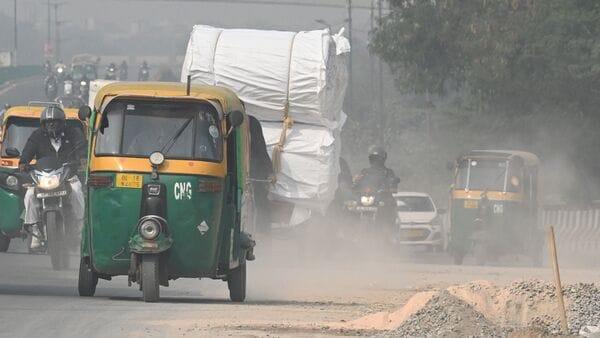
Noida Air Is Unbreathable As AQI Crosses 400 Faridabad, Dwarka Score Best Air Quality In Delhi-NCR
Delhi recorded an AQI of 414 on November 12 with seven air quality monitoring stations out of 39 reporting an AQI in very poor or poor range. With alarming levels of pollution across the national capital, Wazirpur recorded the highest AQI of 458. Only NSIT Dwarka monitoring station recorded better air quality than rest of Delhi in 'poor' range with an AQI of 216. Gurugram recorded an AQI of 355 while Faridabad registered an AQI of 292.
Impact of prolonged exposure to air pollution on healthAs the impact of chronic exposure to air pollution raises concerns, the Commission for Air Quality Management (CAQM) invoked Stage III curbs under the Graded Response Action Plan (GRAP) on November 11 after AQI surged to 428. These anti-pollution measures are being enforced across the entire National Capital Region (NCR).
It is important to note that an AQI between 201-300 'is considered poor', between 301-400 is termed as 'very poor' while AQI levels above 400 on a 500 scale are considered as severe,' as per CPCB classification. The CAQM attributed calm winds, a stable atmosphere and unfavourable meteorological conditions as key reasons for the sudden spike.
Sustained exposure to polluted air comes with far-reaching and long-term health consequences, experts warn. As per the State of Global Air 2025 report, India recorded over two million deaths linked to toxic air in 2023. Experts describe the situation as a deepening environmental and human crisis with PM2.5 concentrations in South Asia among the highest globally, raising cancer risk.
The impact of high pollution levels on health is much more than respiratory ailments as it affects body's immunity. Discussing the impact of toxic air on health, Rohini's Jaipur Golden Hospital Dr Rakesh K Chawla said, "Delhi represents the sharp edge of India's air-pollution emergency," PTI reported.
He further noted,“This isn't just a seasonal inconvenience; it's a continuous assault on lungs that weakens immunity, worsens asthma, and accelerates chronic lung disease. Clean air must be treated as a basic right, not a luxury dependent on weather or wind.”
What is banned and what is allowed in Delhi-NCR?Under the GRAP Stage 3 restrictions, construction and demolition activities are banned besides suspension of industrial operations in those industries that use unapproved fuels. Except for essential projects such as roads, railways, and airports, all construction activities across the national capital are put on hold.
Delhi-registered diesel-operated Medium Goods Vehicles (MGVs) and specific non-Delhi-registered Light Commercial Vehicles (LCVs) are not allowed to run on roads. Furthermore, those carrying essential goods are exempt. Schools up to Class 5 in Delhi-NCR shifted to a hybrid mode of teaching.
Legal Disclaimer:
MENAFN provides the
information “as is” without warranty of any kind. We do not accept
any responsibility or liability for the accuracy, content, images,
videos, licenses, completeness, legality, or reliability of the information
contained in this article. If you have any complaints or copyright
issues related to this article, kindly contact the provider above.


















Comments
No comment